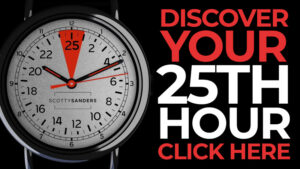Break the cycle. Before you quit your job, consider the following factors:
Turnover Costs
What does this have to do with you? You don’t want to be the person who leaves positions regularly. Employee turnover is expensive, costing up to six – nine month’s salary. Think about the investment the company has in you such as onboarding, training, productivity loss, etc. You want to leave things better than when you got there; you don’t want to cost the company.
Quitting Can Damage Your Reputation
When you quit your job, it can damage your reputation. When I look through resumes to hire someone, I look at their work history. A constant change of jobs is a red flag; it usually means they are low producers or will never be happy.
Weak Leader Tax
People can be hard to work with and if your boss is a weak leader, you may find it frustrating. If you are not happy in your present job, consider staying if you are paid above market. I call this margin of pay the weak leader tax.
Deciding to quit your job is one you should not take lightly. Access the options, seek wise counsel, and handle the decision the right way – whether leaving or staying!
Just as we experience cycles in life, we also experience cycles in a job. No job is perfect; everyone experiences a difficult day at the office. Learn about the Four Phases of a Job:
Phase One: Excitement
.This is considered the honeymoon phase. You are grateful for a new opportunity. Everything looks great at the beginning of the job.
Phase Two: Frustration
The honeymoon is over. You begin to realize this job is not perfect, leaving you disappointed and confused. During this phase you may experience feelings of shock, denial, fear, anger, justification, and acceptance.
Phase Three: Looking
To escape your frustration, you look for a way out. You may not leave your job, but you are “checked out.” If you choose to go at this time, you tend to repeat this process.
Phase Four: Recommitment
Recommit to your place of employment. Re-dream the dream by thinking about what made you excited when you first started. Think about setting some short-term goals and getting some wins under your belt. These accomplishments will energize you. If none of these things work, consider asking for an outside perspective to help determine the problem (the problem could be you).


